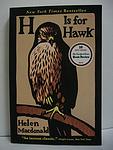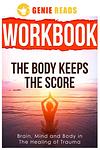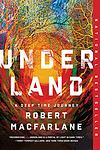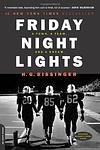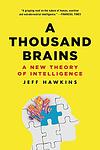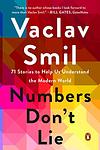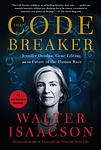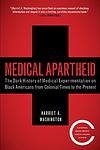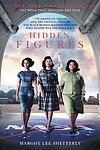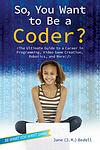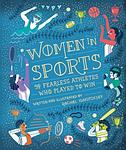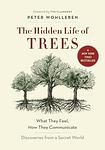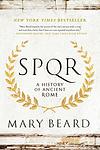The Greatest "Nonfiction" Books Since 1950
Click to learn how this list is calculated.
This list represents a comprehensive and trusted collection of the greatest books. Developed through a specialized algorithm, it brings together 284 'best of' book lists to form a definitive guide to the world's most acclaimed books. For those interested in how these books are chosen, additional details can be found on the rankings page.
Genres
Countries
Date Range
Reading Statistics
Click the button below to see how many of these books you've read!
Download
If you're interested in downloading this list as a CSV file for use in a spreadsheet application, you can easily do so by clicking the button below. Please note that to ensure a manageable file size and faster download, the CSV will include details for only the first 500 books.
Download-
1601. H Is For Hawk by Helen MacDonald
The book is a profound and elegantly written memoir that intertwines the story of the author's journey through grief following her father's death with her decision to train a fierce goshawk named Mabel. As she confronts the challenges of falconry, the narrative explores themes of solitude, human connection to the natural world, and the process of healing. The author's experience with Mabel serves as a mirror to her inner turmoil, providing a raw and intimate examination of loss, while also offering insights into the history and art of falconry, and reflecting on the life of a notable historical figure who shared her passion for hawks.
-
1602. The Body Keeps The Score by Bessel van der Kolk
This book delves into the complex effects of trauma on the mind and body, exploring how traumatic experiences can alter an individual's biology and brain chemistry, leading to lasting psychological and physical consequences. The author, a renowned expert in trauma, integrates clinical case studies with scientific research to demonstrate how trauma reshapes the brain's wiring, particularly areas dedicated to pleasure, engagement, control, and trust. The book also offers hope by presenting advances in treatment, including innovative therapies that help patients reclaim their lives, suggesting that recovery is possible through understanding the science of trauma, mindfulness, and reconnection with one's body.
-
1603. Playing To The Gallery by Grayson Perry
In this candid and witty book, a renowned contemporary artist offers a sharp, insightful critique of the modern art world, demystifying its practices and challenging the status quo. The author navigates through the complexities of what makes art valuable, how taste is formed, and the often-invisible power dynamics at play within the gallery system. With a blend of humor and provocation, the book serves as a guide for both art lovers and skeptics, encouraging readers to question the nature of authenticity and the meaning of art itself, while also providing practical advice for aspiring artists looking to carve out a space for themselves in the competitive art scene.
-
1604. Meadowland by John Lewis-Stempel
"Meadowland" provides an intimate and evocative month-by-month account of a year in the life of a farmland meadow in the heart of rural England. The author, a farmer and naturalist, offers rich descriptions of the landscape and wildlife, weaving personal observations with poetry and lore. Through the changing seasons, from the first snowdrops of January to the December frost, readers are immersed in the natural world and its cycles. The book celebrates the beauty and complexity of an ecosystem often overlooked, highlighting the intricate relationships between plants, animals, and the land, and urging a deeper appreciation for the unassuming yet vital meadows of the countryside.
-
1605. The Yorkshire Shepherdess by Amanda Owen
The book is a heartwarming memoir that offers a window into the life of a woman who has embraced the challenges and joys of farming in one of the most remote and rugged regions of England. With humor and honesty, the author recounts her journey from a suburban upbringing to becoming a shepherdess, wife, and mother of a large family on a sprawling farm. Through her stories, readers experience the daily trials and triumphs of rural life, from braving harsh weather and tending to her flock to raising her children in tune with the natural world. The narrative celebrates the resilience of the human spirit, the importance of community, and the simple beauty of a life lived in harmony with the land.
-
1606. Underland by Robert Macfarlane
"Underland" is a deep exploration into the world beneath our feet, taking readers on a journey into the Earth's underworlds. The book delves into the hidden landscapes of the subterranean, from the catacombs of Paris, the underground fungal networks in forests, to the deep sea caves and glacial crevasses. It beautifully combines natural history, mythology, and environmental science, while exploring themes of human impact on the planet, our relationship with darkness, and the concept of deep time.
-
1607. The Mountains of My Life by Walter Bonatti
"The Mountains of My Life" is a collection of memoirs by a renowned mountaineer, recounting his numerous adventures and expeditions to some of the world's highest and most challenging peaks. The book includes detailed accounts of his climbs, including the first winter solo ascent of the Matterhorn's north face and the first solo winter ascent of the Grandes Jorasses' north face. The narrative also delves into controversial events, such as the author's disputed role in the first ascent of K2. The book is a thrilling blend of mountaineering history, personal reflection, and breathtaking descriptions of nature's grandeur.
-
1608. The Age of Surveillance Capitalism by Shoshana Zuboff
The book explores the emergence of surveillance capitalism, a new form of capitalism that thrives on personal data. The author details how tech companies, such as Google and Facebook, collect and use personal data to predict and modify human behavior as a means to produce revenue and market control. The book delves into the consequences of this phenomenon on economy, society, and democracy, warning about the dangers of unchecked data collection and manipulation.
-
1609. Hip Hop Family Tree by Ed Piskor
This graphic novel chronicles the origins and evolution of hip hop culture, exploring its roots in the Bronx during the 1970s. Through vibrant illustrations and engaging storytelling, the book delves into the lives of influential figures like DJ Kool Herc, Grandmaster Flash, and Afrika Bambaataa, showcasing their contributions to the genre and their impact on music, art, and fashion. With meticulous attention to detail, "Hip Hop Family Tree" offers a captivating and comprehensive look at the birth of a cultural phenomenon.
-
1610. Friday Night Lights by H. G. Bissinger
The book follows the 1988 season of the Permian High School Panthers, a football team in Odessa, Texas. It explores the town's obsession with high school football, the players' experiences and struggles, and the socio-economic, racial, and educational issues that intersect with the sport. The author delves into the pressures and expectations placed on these young athletes by their community and the impact it has on their lives.
-
1611. A Thousand Brains: A New Theory Of Intelligence by Jeff Hawkins
This book introduces a groundbreaking theory of intelligence, proposing a novel understanding of how the brain works. It challenges traditional models by suggesting that the brain operates not through a single engine of reasoning but through a network of many tiny brains working in parallel. Each of these "brains" is a specialized unit responsible for understanding the world through a specific lens. The author, a renowned figure in the field of neuroscience and artificial intelligence, combines the latest scientific research with accessible explanations to explore how this theory could not only revolutionize our understanding of human intelligence but also pave the way for more advanced and empathetic artificial intelligence systems. Through this lens, the book delves into the implications for how we learn, how we make decisions, and how we perceive the world around us.
-
1612. Numbers Don't Lie by Vaclav Smil
In "Numbers Don't Lie," the author presents a compelling exploration of the essential statistics and facts that shape our understanding of the modern world. Through a series of insightful essays, the book delves into a wide range of topics, from energy and transportation to food production and environmental challenges. By analyzing data and debunking common misconceptions, the work offers readers a nuanced perspective on the complexities of technological advancement and its impacts on society. The author's rigorous approach to quantifying human progress and setbacks encourages a deeper appreciation for the role of empirical evidence in public discourse, making it a thought-provoking read for anyone interested in the interplay between science, technology, and culture.
-
1613. The Code Breaker by Walter Isaacson
This book delves into the life and groundbreaking work of Jennifer Doudna, a biochemist who played a pivotal role in the development of CRISPR, a revolutionary gene-editing technology. It chronicles her journey from her early days of fascination with the structure of RNA to her Nobel Prize-winning discovery that has opened new frontiers in genetic engineering. Through detailed storytelling, the narrative explores the ethical dilemmas and potential implications of gene editing, while also highlighting the collaborative and competitive world of scientific research. The book not only celebrates a monumental achievement in biotechnology but also prompts readers to ponder the future of human evolution.
-
1614. Play Nice But Win by Michael Dell
This book offers an insider's perspective on the high-stakes world of technology and business, chronicling the journey of a visionary entrepreneur who transformed a small startup from his dorm room into a global powerhouse. Through a blend of personal memoir and business strategy, the narrative delves into the challenges and triumphs faced in the competitive tech landscape, emphasizing the importance of innovation, leadership, and strategic decision-making. The author shares candid insights and behind-the-scenes stories of battles fought both in and out of the boardroom, advocating for a balanced approach to competition that combines fierce determination with ethical conduct. It serves as both an inspirational roadmap for aspiring entrepreneurs and a reflective look at the relentless pursuit of success in the ever-evolving tech industry.
-
1615. How To Avoid A Climate Disaster by Bill Gates Sr.
In "How to Avoid a Climate Disaster," the author presents a comprehensive and accessible exploration of the challenges and potential solutions to mitigate climate change. Drawing on his extensive experience in technology and philanthropy, he outlines the current state of global emissions and their impacts on the planet. The book emphasizes the importance of innovative technologies and government policies in transitioning to cleaner energy sources. It offers a pragmatic approach to reducing greenhouse gas emissions to zero by advocating for a combination of renewable energy adoption, carbon capture techniques, and advancements in agriculture and manufacturing. The author's insights aim to mobilize individuals, businesses, and policymakers towards urgent action to avert the catastrophic effects of climate change.
-
1616. Medical Apartheid by Harriet A. Washington
This book is a comprehensive history of medical experimentation on African Americans from the era of slavery to the present day. It investigates the racial disparities in healthcare and delves into the dark history of unethical and often deadly experiments conducted on black people in the United States. The author explores the roots of these practices, their implications, and the ongoing struggle for racial equality in the healthcare system.
-
1617. Hidden Figures by Margot Lee Shetterly
The book chronicles the inspiring and previously underappreciated stories of African American female mathematicians who worked at NASA during the mid-20th century. These brilliant women, known as "human computers," played a crucial role in America's space race by performing complex mathematical calculations that were essential for the success of numerous space missions, including John Glenn's historic orbit around the Earth. Despite facing racial and gender discrimination, their perseverance and intelligence not only broke barriers but also set new standards for what women and minorities could achieve in fields dominated by white men.
-
1618. Mapping The Heavens by Priyamvada Natarajan
"Mapping the Heavens" provides a captivating exploration of the cosmos, tracing the radical developments in our understanding of the universe from historical celestial cartography to modern astrophysics. The book delves into key discoveries and the innovative thinkers behind them, such as dark matter, dark energy, and black holes, while also examining the evolving tools and technologies that have propelled our knowledge forward. Through this journey, the book highlights how our perception of the universe's structure has expanded and how these insights challenge our notions of space, time, and the cosmos itself.
-
1619. White Trash by Nancy Isenberg
The book explores the history and complex socio-economic and political implications of the derogatory term "white trash" in America. It traces the origins and evolution of the concept from the early days of British colonization to the present, revealing how class prejudices have shaped American society and politics. The narrative challenges the conventional views of American history and highlights the role of class and social stratification in perpetuating inequality and stereotypes about poor white communities. Through meticulous research, the book provides a provocative reexamination of America's class system and its impact on national identity.
-
1620. Sex In The Sea by Marah J. Hardt
"Sex in the Sea" explores the unique and often bizarre mating behaviors of marine creatures. The book delves into the reproductive habits of various sea animals, revealing how they have adapted to their aquatic environments to ensure the survival of their species. From coral spawning to the seductive dances of seahorses, the author combines scientific research with engaging storytelling to illuminate the challenges and intricacies of underwater reproduction. The narrative also highlights the impact of human activities on marine life and emphasizes the importance of ocean conservation in safeguarding these fascinating reproductive phenomena.
-
1621. So, You Want To Be A Coder? by Jane Bedell
This book serves as a comprehensive guide for young readers who are interested in pursuing a career in coding. It explores various aspects of the coding profession, including different types of programming languages, essential skills for success, and the wide range of career opportunities available in the field. The book also provides practical advice on how to get started with coding, featuring interviews with professionals in the industry and step-by-step projects to help beginners practice their skills. Aimed at inspiring the next generation of coders, it is an informative resource that combines educational content with engaging activities.
-
1622. Women In Science by Rachel Ignotofsky
This illustrated book celebrates the contributions of fifty pioneering women in the fields of science, technology, engineering, and mathematics (STEM) from the ancient to the modern world. It highlights the achievements and stories of notable women who overcame significant obstacles to break barriers in their respective fields, including Marie Curie, Jane Goodall, and Katherine Johnson. Each profile combines engaging artwork with informative text, making the complex world of science accessible and inspiring for young readers and aspiring scientists, particularly girls and young women, emphasizing the importance of diversity and perseverance in STEM.
-
1623. Primera Persona by Margarita García Robayo
"Primera Persona" is a collection of autobiographical essays that delve into the author's experiences navigating the complexities of identity, migration, and cultural dislocation. With sharp wit and unflinching honesty, the author reflects on her life growing up in Colombia, her move to Argentina, and the challenges of establishing herself as a writer in a foreign land. The essays explore themes of family, memory, and the search for belonging, offering a poignant and often humorous look at the intersections of personal history and broader socio-cultural dynamics. Through her narrative, the author invites readers to consider the multifaceted nature of selfhood and the universal quest for connection and understanding.
-
1624. The Hidden Life Of Trees by Peter Wohlleben
This book offers a fascinating exploration into the complex life of forests, revealing the social networks and communication methods that trees use to survive and thrive. The author, a forester, draws on groundbreaking scientific discoveries to illustrate how trees are like human families: tree parents live together with their children, communicate with them, support them as they grow, share nutrients with the sick and the weak, and even warn each other of impending dangers. With deep understanding and an eye for the wonder of these essential organisms, the narrative transforms the way we perceive trees, encouraging us to appreciate the intricate and interconnected life of the forest.
-
1625. Spqr by Mary Beard
This book is a sweeping historical narrative that delves into the heart of ancient Rome, exploring its rise from an insignificant village in central Italy to a world-dominating superpower that lasted for centuries. The author, a renowned classicist, examines not just the famous emperors and battles, but also the lives of the everyday people, the political and social structures, and the complexities of Roman culture. Through a blend of historical analysis, anecdotal evidence, and a fresh perspective, the book challenges preconceived notions about Roman history and provides a nuanced understanding of how this vast empire's legacy continues to influence the modern world.
Reading Statistics
Click the button below to see how many of these books you've read!
Download
If you're interested in downloading this list as a CSV file for use in a spreadsheet application, you can easily do so by clicking the button below. Please note that to ensure a manageable file size and faster download, the CSV will include details for only the first 500 books.
Download